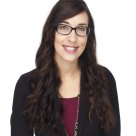The third day of testimony at a Human Rights Board of Inquiry got underway Friday. Complainant Kathleen Symington alleges the Halifax Regional Municipality Fire and Emergency Service discriminated against her based on her gender and disability.

Karen MacDonald, the lawyer for the Halifax Regional Municipality, completed her cross-examination of the key witness Friday morning. Her questioning focused around Symington’s ability to work while seeking accommodation and what was required from her during the process.
READ MORE: Former Halifax firefighter concludes testimony at human rights inquiry
MacDonald referenced notes that say Great West Life (GWL) had arranged in 2014 for Symington to take a computer course at Dalhousie University and asked Symington to confirm if she had taken the course. Symington said she had not.
MacDonald asked if Symington was aware her benefits were cancelled because she did not sign up for the course.
Symington told the board that her understanding was her benefits had been cancelled because GWL had been in discussion with Phil McNulty, the executive officer to the chief in the fire department, and comments had been made that Symignton was not co-operating with the accommodation process.
Symington said as for the university course, she had a doctors note saying that her chronic pain stemming from her car accident and ongoing stress related to the whole process prevented her from being able to work on a computer for hours a day.
MacDonald asked about another instance where her benefits were terminated in 2014. Earlier she had referenced notes saying the benefits were terminated because of a change in the LTD definition after two years.
READ MORE: Meet the Mounties who allege the RCMP used their disabilities to force them out
MacDonald noted that according to the collective agreement, an employee could be off their original position and receive LTD for two years for that position, but after that would have to look at other work. According to notes, MacDonald says Symington was found to be qualified for types of work other than firefighting, including work in bylaw and fire prevention. The insurance company subsequently cut off benefits because it found she was qualified to work.
MacDonald asked Symington if she looked for employment outside HRM when her LTD was cut off. Symington said she did. She also said she did not search for a job within HRM herself during the accommodation process.
In terms of the insurance company finding her qualified to work in other positions, Symington says she received a doctor’s note outlining that her symptoms relating to chronic pain and PTSD would prevent her from working in bylaw or fire prevention at that time.
WATCH: Volunteer firefighters seek additional PTSD services

Questions were then raised in regards to her functional ability and her assessment. Symington explained her understanding was that the 2012 functional assessment (FCE) would be what is used. MacDonald asked about discussions where a second FCE was requested. Symington acknowledged those discussions were brought up in summer 2013, but nothing concrete was decided.
In 2014, a second FCE was completed which found Symington could work eight hours a day in a light to medium position.
MacDonald then referred to an email from the municipality in February of 2015 which was asking Symington if her capabilities had changed. Symington said they had not. Then in April Symington received a note from her doctor stating that her chronic pain and symptoms from PTSD had worsened and her overall stress level and anxiety combined with the chronic pain would prevent her from working in any position. MacDonald asked why she waited until she was offered a job eight weeks later before handing in that doctors note.
Symington explained she had provided the note to her insurance company and expected it would have also been shared with the municipality. She expressed confusion over the process and said it was not up to her to disclose private medical information with the municipality outside of physical assessments but she believed the municipality received the note from the insurance company and that is ultimately why she was offered a job.
MacDonald concluded her questioning, confirming the timeline of the year before Symington filed the human rights complaint on April 8, 2016. She asked what contact she had with HRM aside from the job offer and her rejection of the job as per doctors orders in May 2015. Symington said she did not recall if there was anything.
MacDonald’s last question confirmed if Symington had been offered a chance to file a grievance about the process. Symington said she had been offered but did not.
Prior to the start of the inquiry, there were concerns raised by the municipality that Symington did not file her Human Rights Complaint within a year of the latest incident which is required. It was discussed holding a preliminary hearing to determine if that was the case before going over evidence, but after a quick discussion between parties it was agreed upon to proceed as the evidence and timeline needed to be presented in order to determine the exact timeline.
There is still a possibility the case is dismissed at the end based on the timeline.
Ron Stockton, who is representing Symington, says they remain confident they filed within the time frame.
“The act requires there to be incidents in the last year, we think this is a bit different than just a straight discrimination case,” he said. “This is a failure to accommodate so the fact that HRM was essentially doing nothing is an act. In other words, a failure to act is an act.”
WATCH: Decision reached following human rights complaint against N.S.

Following Symington’s testimony and cross-examination, Paul Andrews was called as a witness. He is a friend of Symington and was present at several of the meetings discussed throughout the inquiry. Andrews was questioned briefly by both the complainant’s lawyers and the municipality. He corroborated Symington’s version of events but admitted during the cross-examination that he has no background with human resources or the accommodations process.
Symington’s lawyers have decided not to call any further witnesses.
“We reviewed it with our client during the break and they don’t have a whole lot more to add,” said Stockton. “I think the evidence thus far has come out quite clearly and fully, so we didn’t think there was any point in calling people just to repeat what we already know.”
The municipality is expected to call on eight witnesses. The first two witnesses being called Monday are Phil McNulty, who is now retired but worked as the executive officer in the fire service during the accommodation process. They will call Doug Trussler as well, who is also now retired but was the fire chief in 2013 when Symington was seeking accommodation.




Comments